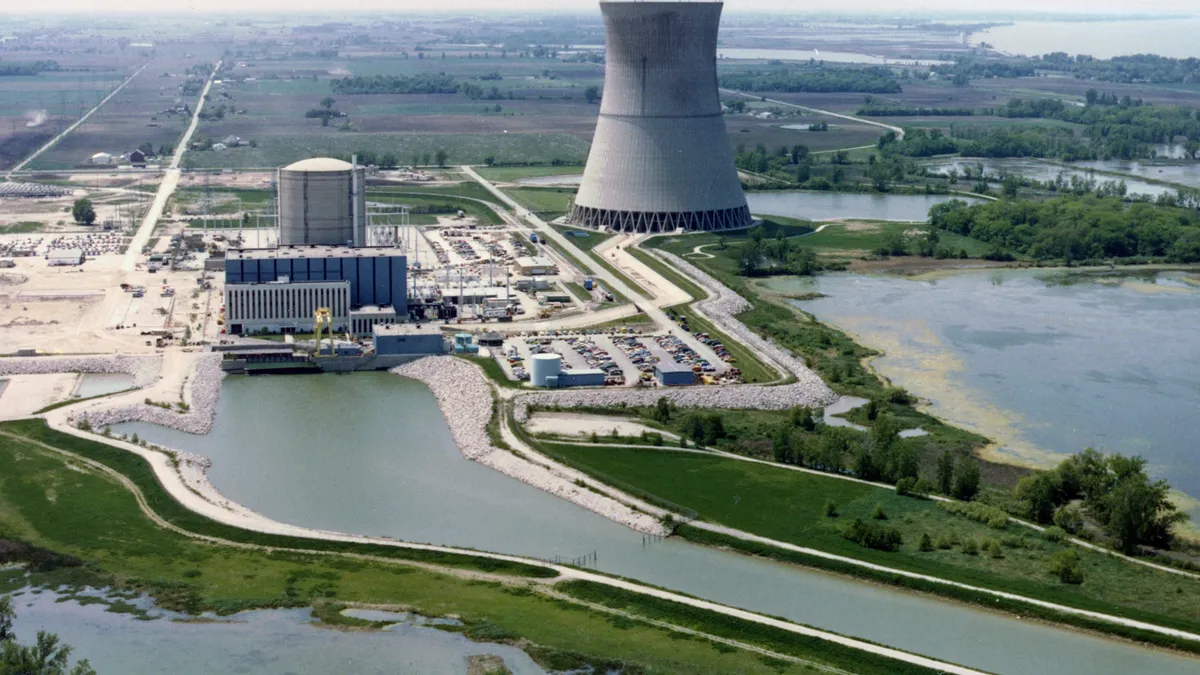Dive Brief:
- Entergy Corp. plans to shutter its 680 MW Pilgrim Nuclear Power Station in Plymouth, Mass. no later than June 1, 2019, the company said this week.
- AP reports that financial factors drove Entergy to make the decision, including tough market conditions, reduced revenues and increased operational costs. Entergy said it did not anticipate the economics of the plant to change in the near future, either through a rebound in power prices or a different market structure.
- The exact timing of the closure will be decided next year, but the company has already informed the ISO New England that it intends to stop participating as a capacity resource.
Dive Insight:
Once Entergy's Pilgrim facility is shut down, Massachusetts will be out of the nuclear business.
Entergy said the decision was based on a host of financial factors, including low current and forecast wholesale energy prices, largely driven by a glut of cheap shale gas. Current and forecast power prices have fallen about $10/MWh, which Entergy estimated as an annual loss of more than $40 million in revenues for Pilgrim.
Bill Mohl, president of Entergy Wholesale Commodities, told AP the decision was "agonizing."
"When we look at energy policies in Massachusetts we see a proposed clean energy standard that excludes nuclear, a preference for Canadian hydro power and the subsidization of gas pipeline capacity through electric ratepayers, and put that all together ... and it became clear to us that we needed to make the decision to retire Pilgrim," Mohl said.
Last year, the company pushed for market changes to help keep 680 MW plant economical, but the writing was on the wall. A company spokesperson said the Pilgrim plant is a “marginal unit” that fails to meet the company's profit requirements.
Entergy said wholesale energy market "design flaws continue to suppress energy and capacity prices in the region, and do not provide adequate compensation to merchant nuclear plants for the benefits they provide." Among those: carbon-free energy, onsite fuel storage, and large-scale generation that is ready on demand.
But the company said it was not able to get those benefits recognized in recent years. "Pilgrim's economic performance is also undermined by unfavorable state energy proposals that subsidize renewable energy resources at the expense of Pilgrim and other plants," the company said. "Also detrimental are a state proposal to provide above-market prices to utilities in Canada for hydro power representing about one-third of Massachusetts' electricity demand and a recent state agency's order that would further lower the price of natural gas and increase the region's reliance on it."
The plant's absence could create a "potential energy shortage" for the state and the New England region, Gov. Charlie Baker (R) told Boston Globe. But for groups that supported closing the Pilgrim station, its absence could open the door toward more clean energy alternatives.
The Pilgrim plant provided about 5% of the region's power and makes up 84% of Massachusetts' non-carbon emitting energy, according to the Boston Globe. Shutting down the plant could hurt the state's goal of cutting its carbon emissions 25% below 1990 levels by 2020.
The announcement followed the US Nuclear Regulatory Commission's move last month to list the Pilgrim station as one of the least-safe reactors in the country, the Boston Globe reports.















